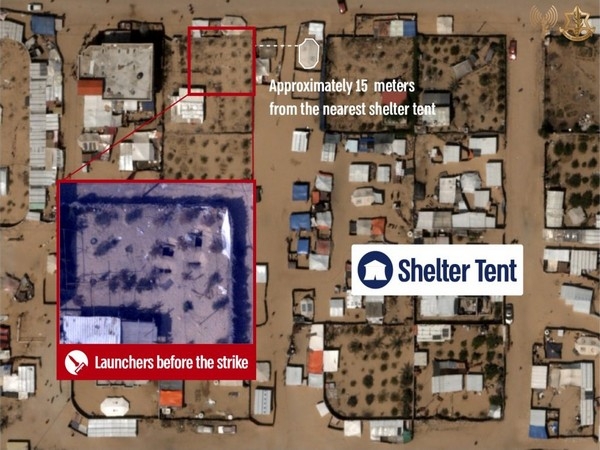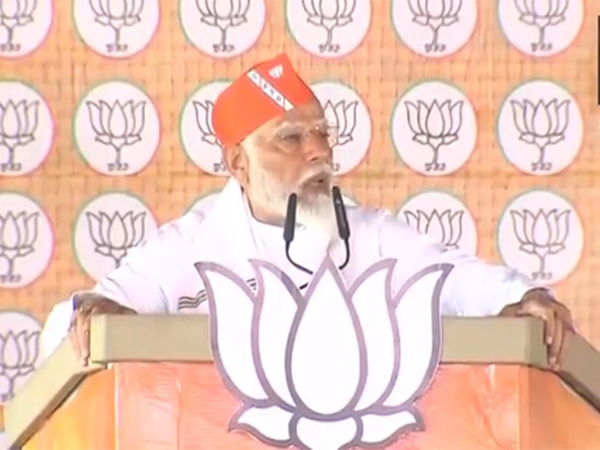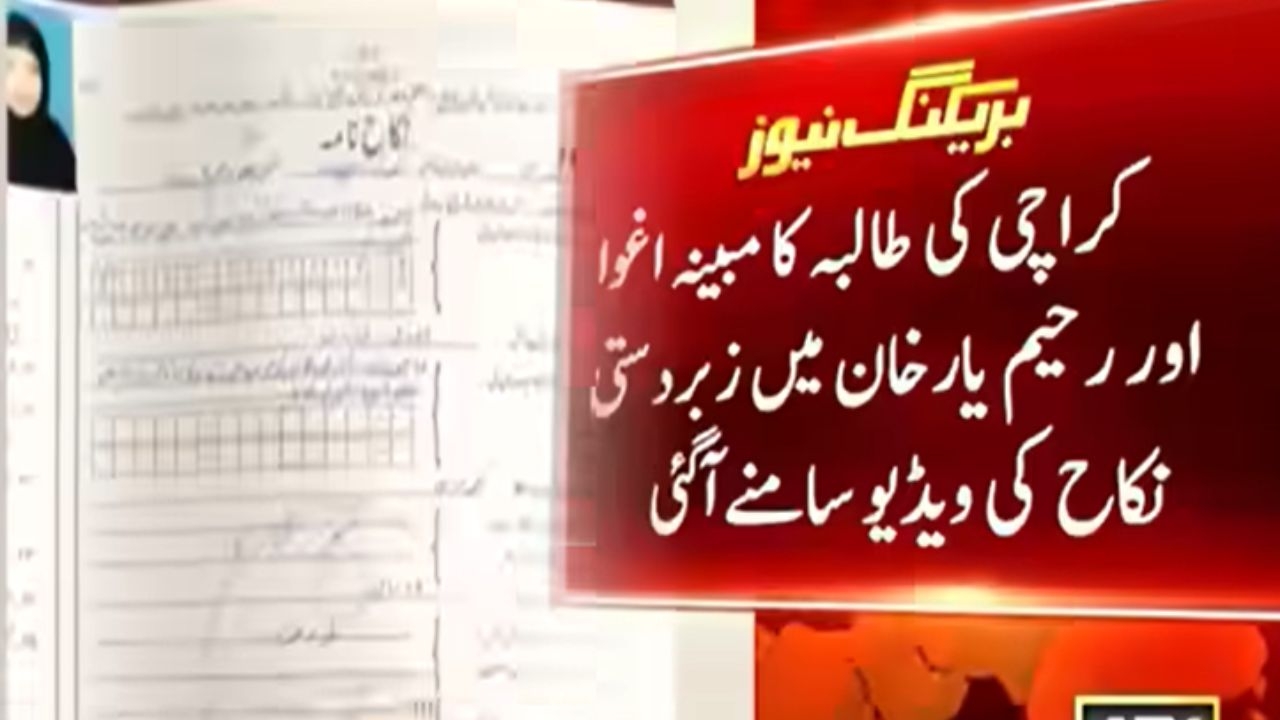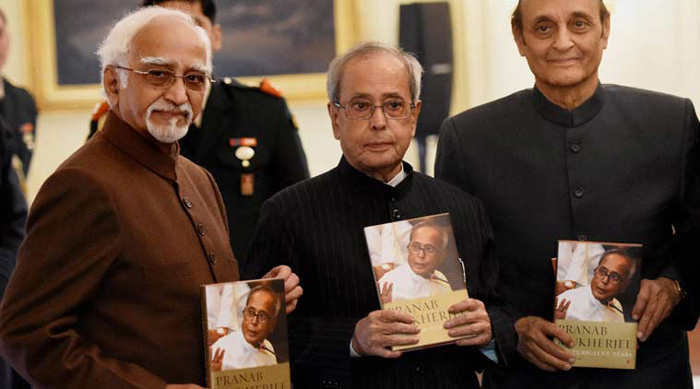
In the second part of his memoir The Turbulent Years, President Pranab Mukherjee reflects on the years between 1980-1996, the period which saw the anti-Sikh riots, Indira Gandhi's assassination and the Babri Masjid demolition.
Mukherjee puts forth the government perspective, mostly defending it and sometimes faintly criticising it. Interspersed is his own journey as a politician. A journey that was fraught with insecurities, disenchantment and misunderstandings with fellow politicians.
The 5 key points from his book:
1. How Indira Gandhi dealt with Sanjay Gandhi's sudden death
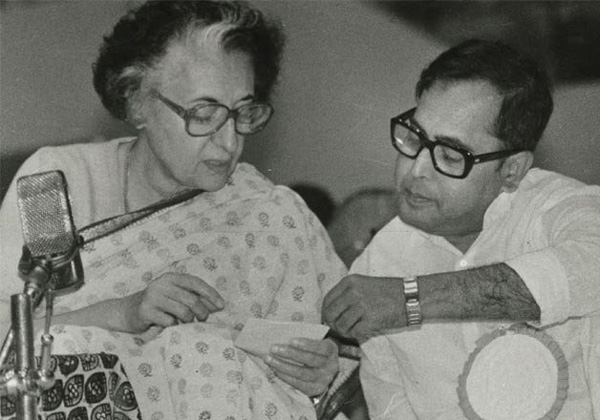
File photo
Mukherjee's book begins with details of the plane crash that killed Indira Gandhi's older son, Sanjay Gandhi, on 23 June, 1980.
The highlight of this portion is not Sanjay Gandhi, who had started wielding immense power within the party and the Government despite not being a member of the Parliament, but how the then Prime Minister Indira Gandhi dealt with the personal tragedy. Being an insider, Mukherjee gives us touching glimpses from inside 1 Akbar Road, the official residence of the PM, where mourners paid their last respects to Sanjay Gandhi.
"Indira Gandhi was a strong-willed and self-controlled personality with an innate capacity to absorb grief, as I discovered over the period of my association with her. Rarely did she make a public display of emotion. Throughout the time she was at the hospital, and even after, she remained stoic, wearing dark glasses possibly in an attempt to hide the despair in her eyes.
It was late in the night, and a stream of people was continually pouring in when I saw Mrs Gandhi walk up to where Sanjay's body lay. She seemed to notice that the part of the sheet covering his foot had gone slightly askew. Murmuring softly that he might feel cold, she gently pulled the sheet back over his foot. A small but telltale sign of the emotion she bravely kept away from the public gaze".
2. On differences with Dr Manmohan Singh
Much before former Prime Minister Manmohan Singh and Pranab Mukherjee became cabinet colleagues, the two crossed each others paths in 1982. Mukherjee, as the then finance minister in Indira Gandhi's cabinet and Dr Manmohan Singh as the governor of the RBI had several differences in terms of fiscal policy.
However, Mukherjee says that such differences never led to any acrimony between the two. In fact, he clarifies "contrary to conjecture in some quarters, I had absolutely no role in Dr Manmohan Singh's departure from the RBI. By December 1985, Prime Minister Rajiv Gandhi was firmly in the saddle and I was out of the Cabinet and party. It was PC Alexander, Principal Secretary to the Prime Minister, who informed Dr Singh of the decision to move him to the Planning Commission".
3. The difficult years with Rajiv Gandhi
From being dropped from Rajiv Gandhi's cabinet after the Congress registered a historic win in the aftermath of Indira Gandhi's assassination to being expelled from the party and forming his own party, Mukherjee reflects upon these difficult years.
Recalling his reaction to the news of being dropped from Rajiv Gandhi's cabinet, he writes:
"When I learnt of my ouster from the Cabinet, I was shellshocked and flabbergasted. I could not believe it. But I composed myself, and sat alongside my wife as she watched the swearing-in ceremony on television.
As soon as it concluded, I wrote to the Ministry of Urban Development asking to be allotted a smaller house in place of my 2 Jantar Mantar residence (which was a ministerial allocation), pointing out that I had ceased to be a minister. This was something I had done in 1977, too. I then went off on a holiday with my family who had long suffered my neglect. "
What eventually led to his expulsion was a cover story by Pritish Nandy in the Illustrated Weekly titled: ''The man who knew too much'. About Nandy, he writes: "I know that he was out to make mischief." Following the publication of the book, "there was furore in political circles" and speculations were rife that Mukherjee knew something that could harm Rajiv Gandhi. Soon, he would come to know that he was being expelled from the party for a period of six years.
However, despite everything, Mukherjee only blames himself for his departure from the Congress. He feels that forming his own party was the biggest mistake of his life and that he should have known he wasn't a "mass leader".
He writes:
"Those who left the Congress rarely succeeded. I could have been of some help to the Congress party and the government during those crucial years of 1986 and 1987 when everything seemed to go wrong for Rajiv. Alas, I returned to the party only in 1988 - too late to make any significant difference to the Congress' performance in the Lok Sabha elections of 1989."
4. 'The inability to prevent the demolition of the Babri Masjid was one of PV's biggest failures.'
Pranab Mukherjee is very critical of the role the Congress government at the Centre, helmed by PV Narshima Rao, played during the Babri Masjid demolition on December 6, 1992. He strongly feels that the Centre had fallen short of taking proactive steps to stop "the senseless, wanton destruction of a religious structure, purely to serve political ends".
In the book, he recalls his outburst in the presence of then Prime Minister PV Narasimha Rao. He writes: "Later, in a private meeting with PV, I did not mince words. I burst out, 'Was there no one who advised you of the dangers? Did you not understand the global repercussions of any damage to the Babri Masjid? At least now take concrete steps to quell communal tensions and assuage the feelings of Muslims through affirmative action."
5. All praise for Mamata Banerjee
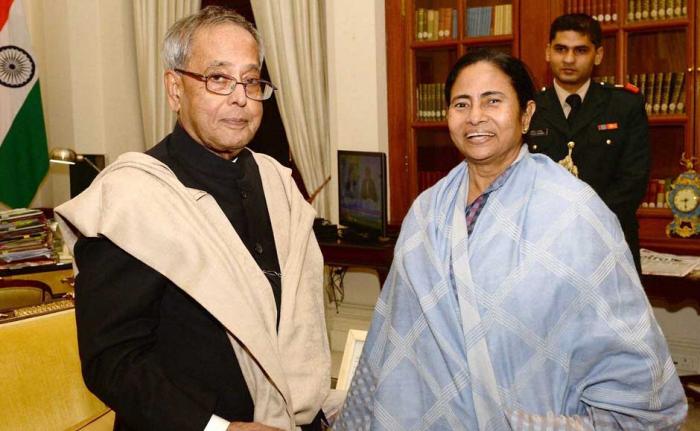
Photo: PTI
The Congress might be in the Opposition in West Bengal and a staunch rival of Chief Minister Mamata Banerjee. But Mukherjee, the lifelong Congressman has only good things to say about the fiery leader who rose from students' politics to splitting from the Congress and eventually dislodging the three-decade-old Left rule in the state. Mukherjee also takes credit for spotting her talent early on.
He writes:
"When Rajiv called me to ask why we were giving CPI(M) leader Somnath Chatterjee a walkover in the Jadavpur constituency in the 1984 Lok Sabha elections, I immediately thought of Mamata as an excellent opponent to Chatterjee. I also remembered that Rajiv believed that strong opposition candidates should be challenged by young debutantes. I called Subrata Mukherjee, who had introduced Mamata to me, and asked him for his views. Subrata strongly supported my idea. Mamata was nominated by the party and fought the elections. She defeated Somnath Chatterjee, becoming a giant-killer in the process."


_251372_300x172.jpg)
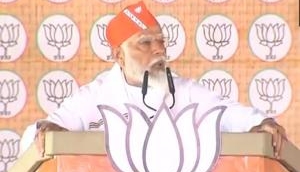
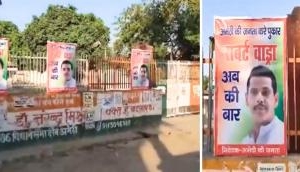
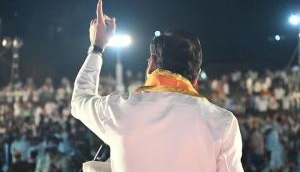
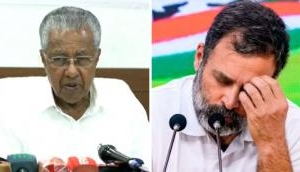
![BJP's Kapil Mishra recreates Shankar Mahadevan’s ‘Breathless’ song to highlight Delhi pollution [WATCH] BJP's Kapil Mishra recreates Shankar Mahadevan’s ‘Breathless’ song to highlight Delhi pollution [WATCH]](http://images.catchnews.com/upload/2022/11/03/kapil-mishra_240884_300x172.png)

![Anupam Kher shares pictures of his toned body on 67th birthday [MUST SEE] Anupam Kher shares pictures of his toned body on 67th birthday [MUST SEE]](http://images.catchnews.com/upload/2022/03/07/Anupam_kher_231145_300x172.jpg)


_251372_1280x720.jpg)
_251371_1280x720.jpg)
